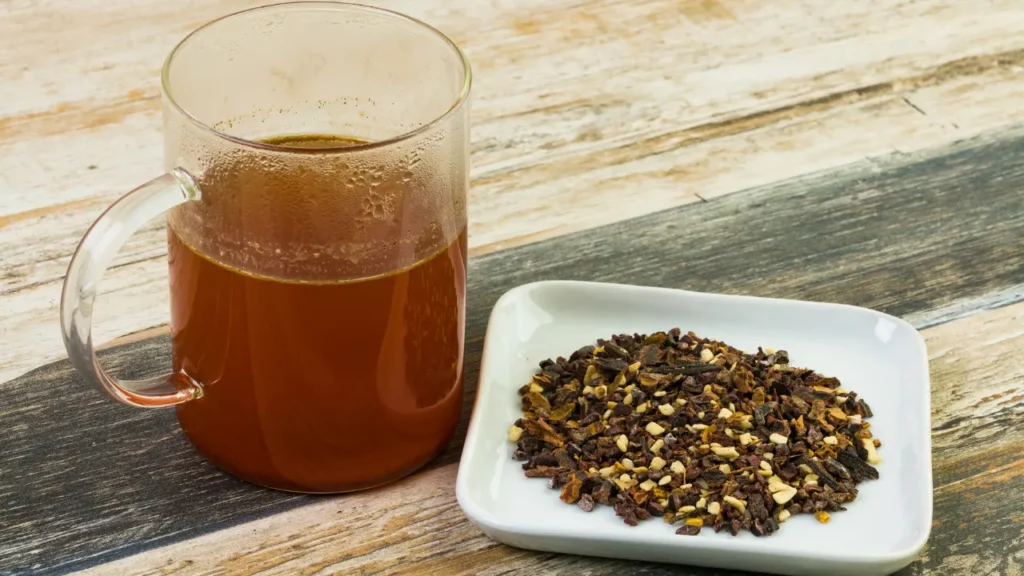A member of the Poaceae family, sweet vernal grass (Anthoxanthum odoratum) has been used in many cultural traditions because of its distinctively sweet, coumarin-laden aroma and possible medical uses. Emerging studies indicate that sweet vernal grass may have nootropic effects, boosting cognitive abilities like alertness, focus, and general cognition, in addition to its traditional uses in perfumery and as a flavor enhancer. This article examines the chemical makeup of sweet vernal grass, research-backed health advantages, the best ways to take it, potential side effects, interactions with other drugs, and the responsible usage of this plant to improve cognition.
You May Also Like:
Dendrobium: Benefits, Dosage, Side Effects, Drug Interactions, and Other Important Information
Sweet Vernal Grass: Benefits, Dosage, Side Effects, Drug Interactions, and Other Important Information is an original (NootropicsPlanet) article.
Nature of Sweet Vernal Grass
Anthoxanthum odoratum, the scientific name for sweet vernal grass, is a perennial grass that is native to Eurasia and is found in many temperate parts of the world. It is distinguished by its fragrant foliage, which is most potent in the early spring, and short, dense tufts. Sweet vernal grass is a remarkable species in grassland ecosystems because of its distinctive aroma caused mainly by coumarin. Its usual height ranges from 20 to 60 cm, and its characteristic spike-like inflorescence, which blooms from April to June, is paired with slender, green leaves.
Sweet vernal grass is essential in ecology because it increases the richness and stability of meadows and pastoral settings. Due to its hardiness and fragrant qualities, it has also been used for its scent and purported health advantages in traditional medicine and other cultural activities. The grass’s sturdy nature is highlighted by its capacity to flourish in various soil types and its adaptation to different environmental circumstances, making it a species of interest for ecological and possible medicinal applications.
Health Benefits of Sweet Vernal Grass
Cognitive Enhancement: One of the primary health benefits of sweet vernal grass is its potential to enhance cognitive functions. The coumarins in sweet vernal grass, especially coumarin, are believed to improve mental clarity and focus. This effect is likely due to the modulation of neurotransmitter levels in the brain, particularly serotonin and dopamine, which play crucial roles in regulating mood, memory, and cognitive functions. Enhanced levels of these neurotransmitters can lead to increased alertness and better cognitive performance, making sweet vernal grass a potentially valuable supplement for individuals seeking to boost their mental capabilities.
Mood Improvement: Sweet vernal grass has been associated with mood stabilization besides cognitive enhancement. The modulation of neurotransmitters impacts cognitive functions and emotional states. By potentially enhancing the levels of serotonin, known as the ‘feel-good’ neurotransmitter, sweet vernal grass may help alleviate symptoms of depression and anxiety, leading to a more stable mood and improved overall emotional well-being.
Antioxidant Properties: The coumarins in sweet vernal grass also exhibit significant antioxidant properties. Antioxidants are crucial for combating oxidative stress, which is implicated in the aging process and numerous disease states, including neurodegenerative diseases like Alzheimer’s and Parkinson’s disease. Sweet vernal grass may help protect neural cells from degeneration and dysfunction by reducing oxidative damage, thus preserving cognitive functions and reducing the risk of neurodegenerative diseases.
Anti-inflammatory Effects: Chronic inflammation is another pathological process in developing various chronic diseases, including those affecting cognitive health. The anti-inflammatory effects of sweet vernal grass can be particularly beneficial in reducing inflammation in the brain, which is thought to play a role in the progression of cognitive decline and dementia. Sweet vernal grass helps maintain a healthy brain environment conducive to optimal neural function by mitigating inflammatory responses.
Neuroprotective Potential: Sweet vernal grass may offer neuroprotective benefits beyond its antioxidant and anti-inflammatory properties. These effects are primarily attributed to the action of coumarin and other phytochemicals present in the grass, which help shield brain cells from damage and support the repair mechanisms necessary for recovering from cellular stress. This neuroprotective action contributes to the longevity of healthy cognitive function and may provide a preventative measure against age-related cognitive decline.
Supporting Cardiovascular Health: Although not directly related to cognitive enhancement, improving cardiovascular health can indirectly benefit brain function. Coumarin in sweet vernal grass has been shown to possess anticoagulant properties similar to those of synthetic drugs like warfarin, albeit at a much milder level. Sweet vernal grass may enhance cerebral circulation by improving blood flow and preventing blood clots, ensuring that the brain receives ample oxygen and nutrients necessary for optimal function.
These comprehensive health advantages demonstrate sweet vernal grass’s promise as a medicinal herb, especially in neuroprotection and cognitive enhancement. Though encouraging, these advantages must be balanced against possible hazards and adverse effects, especially for people with particular medical conditions or those on specific drugs. As with any supplement, it is advised to speak with a healthcare professional to ensure safe and efficient use.

Chemistry of Sweet Vernal Grass
Coumarins, primarily coumarin itself, a benzopyrone molecule, are the main chemical constituents of sweet vernal grass. Sweet vernal grass is a common ingredient in scents and flavorings because of this aromatic organic chemical’s pleasing aroma. Because of its structure, coumarin can interact with various biological pathways, affecting the body’s pharmacokinetic and pharmacodynamic functions. Sweet vernal grass also includes flavonoids, phenolic acids, and other volatile chemicals, though to a smaller degree than coumarin, which gives it its overall therapeutic qualities.
Physiological Mechanism of Action
Coumarin’s effects on the central nervous system are responsible for sweet vernal grass’ physiological impacts on cognitive processes. Coumarins can improve cerebral blood flow and show neuroprotective properties. One such coumarin is present in sweet vernal grass. Through their modulation of neurotransmitter systems, these substances may dopamine and serotonin availability in the synaptic cleft, so improving mood, alertness, and cognitive performance through increased neurotransmission.
Coumarins have also been reported to have antioxidant and anti-inflammatory properties. These characteristics aid in reducing inflammation and oxidative stress in neural tissues, both linked to the onset of neurodegenerative disorders and cognitive decline. The active ingredients in sweet vernal grass contribute to its nootropic effects by reducing these detrimental processes and supporting the preservation and improvement of neurological health.

Optimal Dosage of Sweet Vernal Grass
Sweet vernal grass’s ideal dosage is difficult to determine because different harvests and preparations have varying coumarin contents. Herbal supplements made from the grass are often taken as an extract or in dried form. Standardized extracts with dosages ranging from 100 to 300 mg per day, depending on the concentration of the active ingredients, are typically utilized in clinical research to ensure consistent coumarin levels.
Users should always speak with medical specialists before starting a new supplement regimen, especially if it contains potent ingredients like coumarin, to choose a safe dosage appropriate for their needs.
Side Effects of Sweet Vernal Grass
Sweet vernal grass is usually considered harmless for most people; however, because of its coumarin content, it has some hazards and adverse effects. Coumarin acts as a strong anticoagulant and can be hazardous to the liver in high quantities. It can also create problems with blood coagulation.
Mild gastrointestinal issues like nausea and diarrhea are typical adverse effects. Rarely, more severe effects include allergic responses that cause redness, irritation, or breathing problems.
Potential Substance Interactions with Sweet Vernal Grass
Due to coumarin’s anticoagulant qualities, sweet vernal grass may interact with other anticoagulant drugs, such as warfarin, hence raising the risk of bleeding. Furthermore, it might interfere with nonsteroidal anti-inflammatory medications (NSAIDs), antiplatelet medications, and other supplements that have been shown to impact blood coagulation mechanisms.
Because sweet vernal grass increases bleeding risk and may cause liver damage, patients with pre-existing diseases like liver disease or those undergoing surgery should avoid it.

Best Responsible Uses of Sweet Vernal Grass
To utilize sweet vernal grass responsibly for its nootropic benefits, users should consider the following guidelines:
- Consult Healthcare Professionals: Before beginning any new supplement regimen, especially one involving sweet vernal grass, it is crucial to consult a healthcare provider, who will ensure that the supplement will not interfere with existing conditions or medications.
- Adhere to Recommended Dosages: Following the recommended dosages based on clinical studies or healthcare advice is essential. Overconsumption can lead to adverse effects, mainly due to the coumarin content, which in high amounts can be toxic.
- Monitor for Side Effects: Users should be vigilant for any adverse reactions. Common side effects may include gastrointestinal disturbances, while more severe effects could involve liver toxicity or issues related to blood clotting.
- Avoid with Certain Medications: Sweet vernal grass should be avoided by individuals on anticoagulant or antiplatelet medications due to the increased risk of bleeding. Likewise, those with liver conditions or impending surgical procedures should consult their doctor due to the grass’s potential impact on liver function and blood clotting.
- Source Responsibly: Ensure that sweet vernal grass supplements are sourced from reputable suppliers who provide standardized extracts to guarantee safety and efficacy.
Sweet Vernal Grass:
Conclusion
Sweet vernal grass may not be as extensively studied as other botanicals, but its historical use and emerging research suggest several potential health-promoting properties. Its traditional uses include promoting relaxation, soothing digestive discomfort, and supporting respiratory health. Research indicates that sweet vernal grass possesses antioxidant and anti-inflammatory properties, which may contribute to its potential benefits for overall health and well-being. Additionally, its aromatic properties suggest it may have potential in aromatherapy for promoting relaxation and reducing stress.
However, further research is needed to understand the mechanisms of action fully and potential health benefits of sweet vernal grass. While it is generally considered safe when used appropriately, individuals should exercise caution, especially if allergic reactions are a concern. Incorporating sweet vernal grass into herbal blends, teas, or aromatherapy formulations may offer a natural approach to supporting relaxation and overall wellness. As with any herbal remedy, consulting with a healthcare professional is advisable, particularly for individuals with underlying health conditions or those taking medications. While more research is needed, sweet vernal grass shows promise as a natural remedy with potential health benefits. It offers a holistic approach to enhancing well-being and vitality.

References:
- On the Origin of Tetraploid Vernal Grasses (Anthoxanthum) in Europe. Retrieved from: https://www.ncbi.nlm.nih.gov/pmc/articles/PMC8308110/
- Sweet Vernal Grass – Uses, Side Effects, and More. Retrieved from: https://www.webmd.com/vitamins/ai/ingredientmono-156/sweet-vernal-grass
- Natural Coumarins: Exploring the Pharmacological Complexity and Underlying Molecular Mechanisms. Retrieved from: https://www.ncbi.nlm.nih.gov/pmc/articles/PMC8440074/
Important Note: The information contained in this article is for general informational purposes only, and should not be construed as health or medical advice, nor is it intended to diagnose, prevent, treat, or cure any disease or health condition. Before embarking on any diet, fitness regimen, or program of nutritional supplementation, it is advisable to consult your healthcare professional in order to determine its safety and probable efficacy in terms of your individual state of health.
Regarding Nutritional Supplements Or Other Non-Prescription Health Products: If any nutritional supplements or other non-prescription health products are mentioned in the foregoing article, any claims or statements made about them have not been evaluated by the U.S. Food and Drug Administration, and such nutritional supplements or other health products are not intended to diagnose, treat, cure, or prevent any disease.


